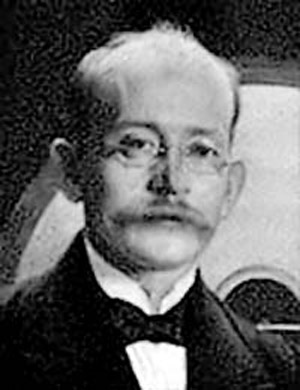Birkeland, Kristian Olaf Bernhard (1867–1917)

Kristian Birkeland was a Norwegian physicist who studied and gave the first accurate explanation of the aurora borealis. Although supported both by his own observations and experiments in the laboratory, Birkeland's theories were not widely accepted until confirmed by satellite evidence in the 1960s. To fund his research, Birkeland cofounded a commercial venture to produce artificial fertilizer (Norsk Hydro is today Norway's largest company) and his technique for nitrogen fixation brought him into contention for a Nobel Prize. Among his other inventions were an electromagnetic cannon, an improved design for hearing aids, and a new method of manufacturing margarine.
Eccentric, enthusiastic, and absorbed in his work, Birkeland kept notes on scraps of paper that he filed under seat cushions, wore a fez and slippers in his lab, and was hurled through the air by bolts of electricity when his experiments went awry. He arranged to give an important lecture on the morning of his wedding and was obliged to talk quickly in order to reach the ceremony on time. After five years of neglect, Birkeland's wife left him.
In 1913, Birkeland traveled to Egypt to study the zodial light (see zodiacal cloud) and found himself stranded there after the outbreak of war in Europe. Isolated from friends and colleagues, and already accustomed to drinking heavily and taking large doses of Veronal to cure his insomnia, these two habits now spiraled out of control. Eventually, Birkeland accepted an offer to accompany the Danish consul back to the Baltic through Asia. In 1917, he was found dead in a Tokyo hotel room after taking 20 times the recommended dose of Veronal. The treatise, on which he had been working furiously in the final months of his life, was lost when a ship carrying his belongings back to Europe went down off the coast of Korea.


